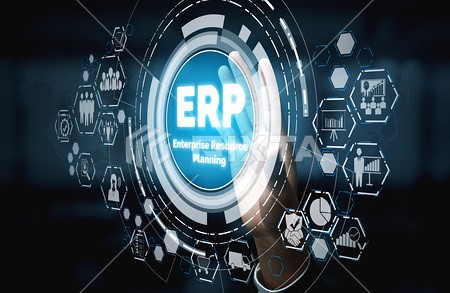Growget is an eCommerce ERP software that has been specially designed to cater to the needs of retailers and wholesalers who want to streamline their business processes and increase their efficiency. With an inbuilt web portal, Growget provides a comprehensive solution that allows users to manage their entire eCommerce business from a single platform.
Retailers and wholesalers can benefit greatly from the features offered by Growget, including inventory management, order management, shipping management, and accounting. The software is easy to use and provides a user-friendly interface that makes it simple to manage all aspects of an eCommerce business


One of the main reasons why ERP is required in an e-commerce platform is because it helps to streamline processes and improve efficiency. With an ERP system, businesses can automate repetitive tasks, which in turn reduces the likelihood of errors and saves time. This can ultimately lead to cost savings and increased profitability.
Another reason why ERP is important for e-commerce platforms is because it provides real-time data and analytics, which can be crucial for making informed business decisions. With an ERP system, businesses can track their inventory levels, monitor sales trends, and gain insight into customer behavior. This information can be used to improve marketing strategies, optimize pricing and discounts, and enhance the overall customer experience.
Overall, implementing an ERP system in an e-commerce platform can help to improve efficiency, increase profitability, and provide valuable data and analytics for making informed business decisions. It is an essential tool for any business looking to succeed in the competitive world of e-commerce.
ERP software has become a popular topic in the business world. Many companies are adopting this software as it increases efficiency and productivity. There are many different types of ERP software available, and choosing the right one can be a daunting task. In this case study, we will take a look at Company XYZ and their experience with implementing ERP software.
Company XYZ had been using manual processes to manage their business operations for years. They had separate systems for accounting, inventory management, and order processing. This led to a lot of duplication of efforts and errors. As the company grew, it became clear that they needed a more streamlined approach to managing their business operations.
After researching different ERP software options, Company XYZ decided to implement SAP ERP. The implementation process took several months and involved significant resources from both the company and the software vendor. However, the end result was a fully integrated system that allowed them to manage all of their business operations from a single platform.
The benefits of the ERP implementation were clear. Company XYZ was able to reduce errors and increase efficiency by eliminating duplicate data entry. They were also able to gain better visibility into their business operations, which allowed them to make more informed decisions. Overall, the ERP implementation was a success and helped Company XYZ to stay competitive in a rapidly changing business environment.

This module helps businesses manage their financial transactions, including general ledger, accounts payable, accounts receivable, cash management, and financial reporting.

This module helps organizations manage their workforce, including recruitment, training, benefits administration, payroll, and performance management.

This module helps businesses manage their production processes, including production planning, scheduling, quality control, and production reporting.

This module helps organizations manage their interactions with customers, including sales, marketing, customer service, and support.